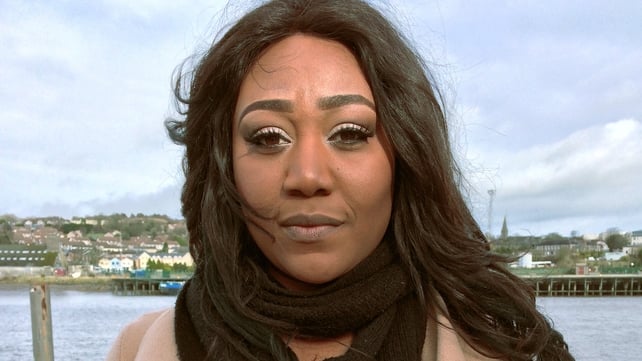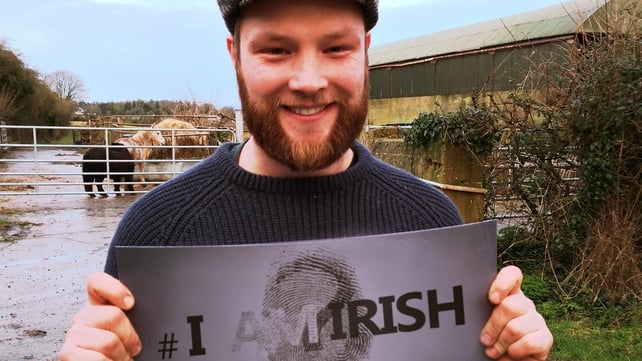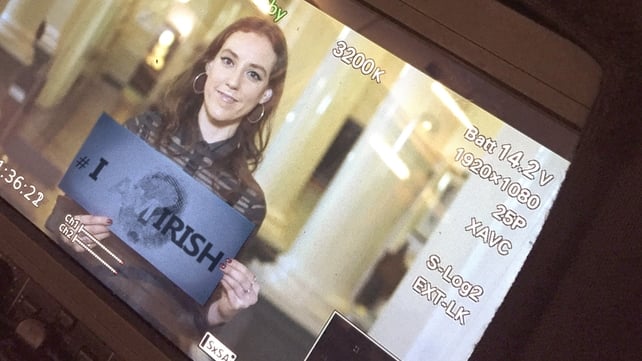I am Irish is the third and final part of the new 'I am...' series on RTÉ 2, following on from I am Immigrant and I am Traveller programmes.
Tonight's documentary looks at what it means to be Irish in Ireland today, particularly for 15 to 34-year-olds. Through a number of interviews focusing on areas such as religion, sexuality, justice, equality, fertility and more, Irish Times journalist Mullally examines what Irishness is and means, now.
"A fair bit of my own column writing involves things about identity and Irishness, so it's a topic I'm endlessly fascinated in," Mullally told RTÉ LifeStyle.
"The production company Midas, who made the documentary, asked me to come on board and I thought it would be a really good opportunity to explore how young people feel about their own identities and their country in a way that was both eclectic and reflective. It can sometimes feel that the representation of young people on television is often a little trite, so this was a chance to go a bit deeper."
To listen back to Una's interview on the Ray D'Arcy show on RTÉ Radio 1 yesterday (Tuesday April 7, 2016) click here.
In the documentary Mullally questions a wide range of people about their own sense of Irishness but what about her own?
"Like most Irish people I'm pretty conflicted about our country and how it operates. I'm definitely a proud Irish person, but I'm also suspicious of a nationalism that's blind.
"I think a lot of our adult lives can be spent unpacking the negative cultural and social impact of living in a country like Ireland - particularly for women and minorities, so I often feel incredibly angry about how Ireland treats women, especially on the issue of abortion which is simply an international scandal at this stage."

The documentary will include Irish names, voices and faces that are familiar to many, such as novelist Louise O'Neill and broadcaster Trish Archer (above), in addition to musicians, activists, social media leaders and many new faces too.
Tír gan teanga...The Irish Language
Pretty apt that Mullally raises awareness or the lack of awareness of the importance of the Irish language and its current and future role in the country.
"I feel a huge attachment to our culture and language, but it frustrates me how the Irish language has been denigrated both in the education system and from a governmental point of view in terms of poor supports and the lack of big picture thinking in how to preserve and progress it."
The Good, the Bad and the not so Pretty
"I do appreciate the relaxed way we interact with each other, and the sense that we have a common ground we can immediately click into when we're away from Ireland with any other Irish person", Mullally added: " I think the documentary recognises a multitude of positives and negatives.
"One of the best parts of Irishness, I think, is the sense of divilment that we have, but constantly taking the p*** isn't necessarily a good thing either! We have a bit of a rant culture which can be great for having long chats and teasing out issues and talking about politics and art and people, but I also think we have a tendency to concentrate too much on the smaller stuff going on in our society and lack a long-sightedness or macro perspective.
"Certainly our political culture is coloured by reactionary conservative politics, as opposed to smart, nuanced actions and thinking.

Women's Reproductive Rights
"The worst part of Ireland for me is the continued denial of reproductive rights for women, and our head in the sand approach to anything that's complex in that way. We're well able to give out, but we also shy away from controversy."
The Marriage Referendum
As an active supporter of last year's referendum, Mullally believes: "The marriage referendum was a game changer for a generation, and that comes across in the documentary. It's something nearly every interviewee referenced.
"I think it was a real watershed moment for the country because it showed that grassroots activism works, that people can change things, and that by being an activist in your community and by voting, we could change the world, which we did, together."
"It's a huge leap forward for Ireland, but it's also important to recognise that while it was a positive change, we should continue to question the structures around us, and fight for the equal rights of others in our society, such as women, Travellers, children, and people living in direct provision."

Why watch I am Irish, tonight at 9.30pm on RTÉ2?
"I think it's a smart documentary that offers a lot of food for thought, and that's something we often don't get on TV when young people are the subject.
"I also think people's points of view on religion were interesting - some just don't care at all, others value spirituality, and others are very religious indeed. What's surprising for us as a nation that comes across in the doc is the resilience of young people, and as one interviewee put it, the scrappiness that drives the creativity of young people.
"I think everyone always paints the economic collapse of Ireland as horrific - which it was - yet while so many people suffered, some young people can still see positive things that it kicked off, which I think is really interesting. There's a tendency to see Irish people as moaners or begrudgers, always giving out, but what's surprising in the documentary is a pervasive sense of optimism."
No better woman to start and keep the conversations going. I am Irish, tonight (Thursday April 7, 2016) at 9.30pm on RTÉ 2. If you miss it, catch up on the RTÉ Player here.


